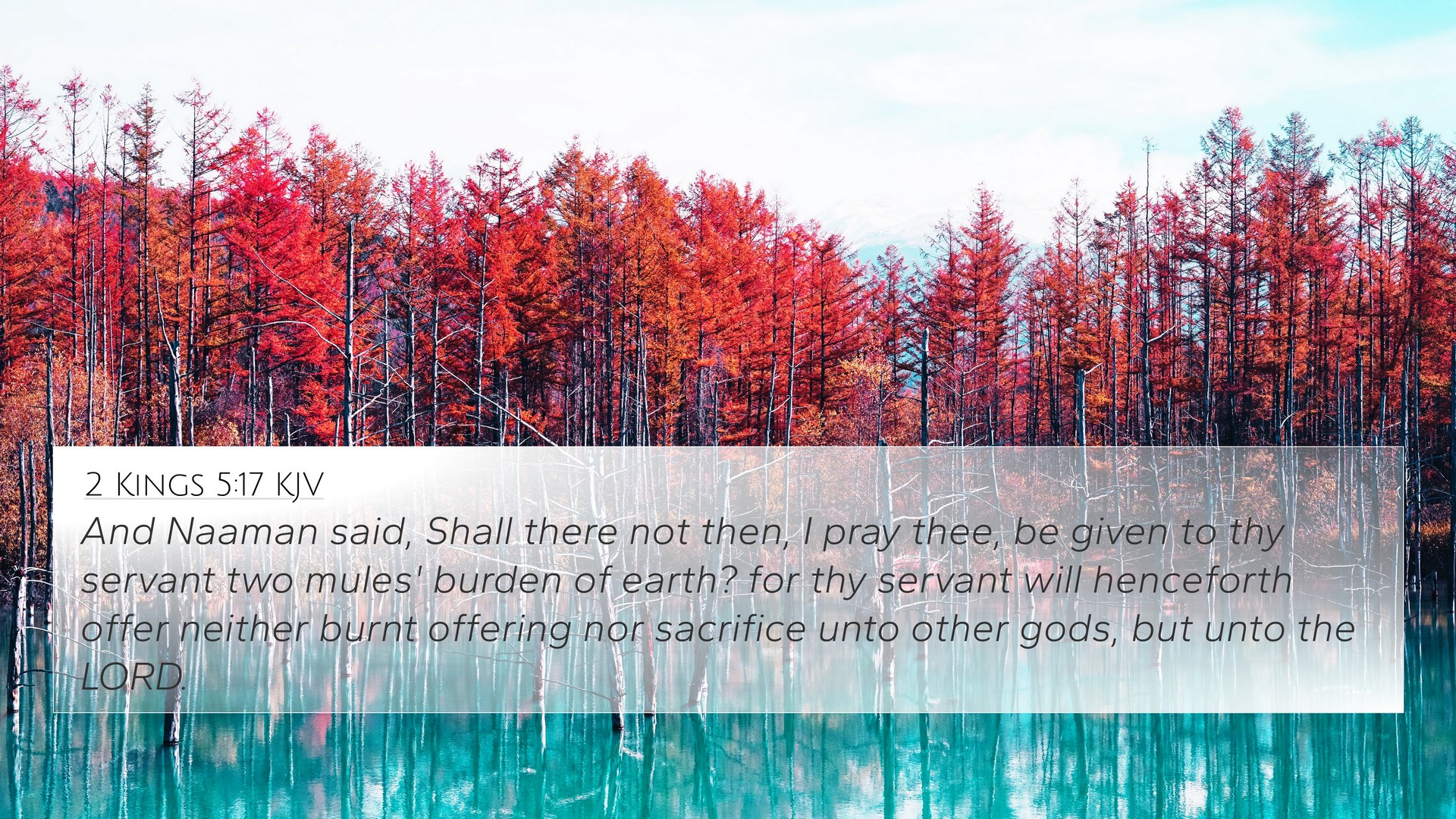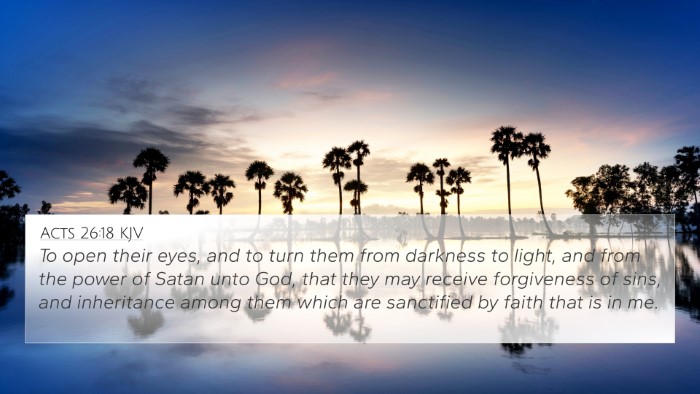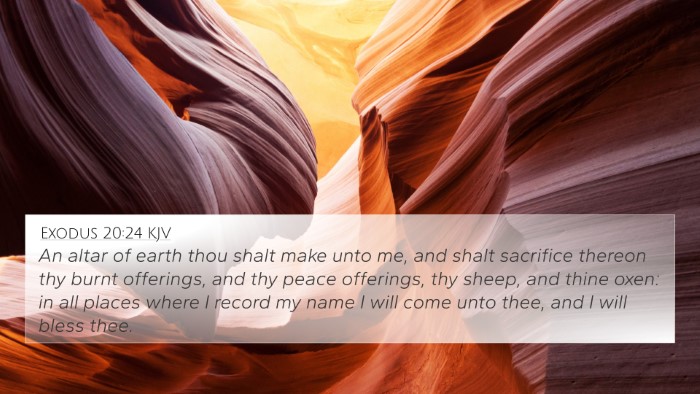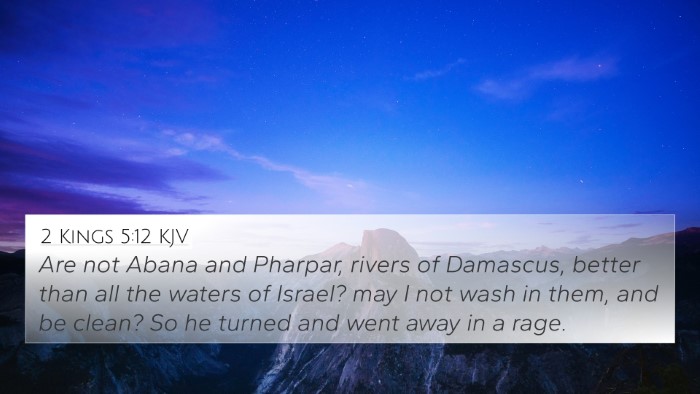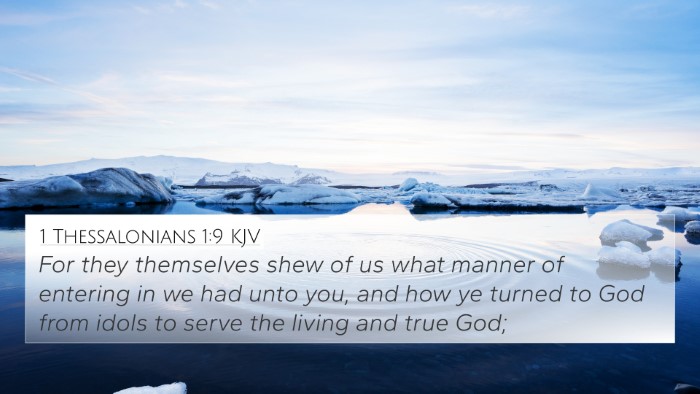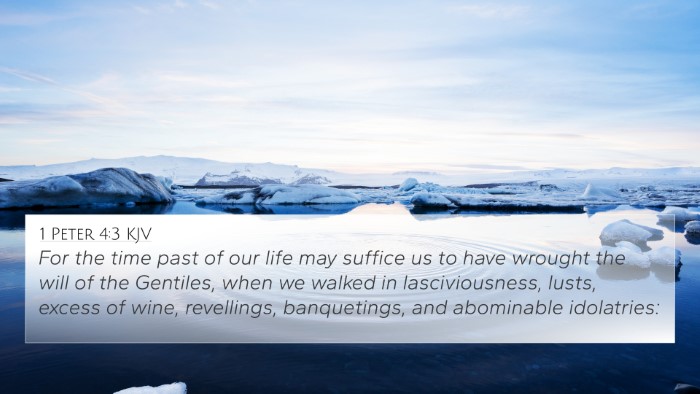Understanding 2 Kings 5:17
Verse: "And Naaman said, 'If not, please let there be given to your servant two mule-loads of earth, for your servant will no longer offer either burnt offering or sacrifice to other gods, but to the Lord.'" (2 Kings 5:17, NKJV)
Summary of Meanings
This verse carries profound significance within the narrative of Naaman's healing and conversion. Naaman, a Syrian commander, had been healed of leprosy by the prophet Elisha. His request for earth signifies his desire to worship God in a manner aligned with the Hebrew tradition. Here, we explore the interpretations provided by esteemed public domain commentaries such as Matthew Henry, Albert Barnes, and Adam Clarke.
Naaman's Transformation
According to Matthew Henry, Naaman’s request for soil is reflective of his newfound faith. He understands that true worship can only happen on the land of Israel, which he associates with the presence and power of the Lord. This act symbolizes his breaking away from pagan practices to fully embrace the God of Israel.
The Symbolism of Earth
Albert Barnes explains that Naaman believed in the significance of the soil as a means of making sacrifices to Yahweh. He wanted to take two mule-loads back to Syria to create a place of worship, indicating a sincere commitment to God. This underscores the point that conversion involves a tangible expression of belief.
Faith and Sacrifice
Adam Clarke highlights that the act of taking soil is also emblematic of Naaman's understanding of sacrifice. By insisting on creating his own altar, he exhibits a desire for a personal relationship with God, emphasizing that genuine worship requires sacrifice, devotion, and a departure from old ways.
Cross-References and Thematic Connections
To deepen the understanding of 2 Kings 5:17, we can explore several biblical cross-references that illustrate similar themes of worship, transformation, and commitment to God:
- Exodus 20:24 - "An altar of earth you shall make for Me..." - This verse reinforces the sacredness of creating an altar dedicated to God.
- Joshua 4:6-7 - The Israelites setting up stones as a memorial signifies the importance of remembering God's deeds.
- Isaiah 56:6-7 - Where God accepts the offerings of foreigners, affirming that worship is accessible to all believers.
- Romans 12:1 - "Present your bodies as a living sacrifice..." - Emphasizing that our worship must come from the heart.
- John 4:24 - God seeks true worshippers who worship in spirit and truth, correlating with Naaman's transformation.
- Hebrews 13:10 - "We have an altar..." which signifies a unique relationship we have with God through Christ, similar to Naaman’s new covenant.
- Psalm 51:17 - "The sacrifices of God are a broken spirit..." - True offerings are more than just physical; they are about the heart's attitude.
Practical Applications and Insights
This verse encourages believers to consider their own spiritual journeys and the transformations that God prompts in their lives. As Naaman took steps to worship Yahweh, individuals today are called to reflect on how they express their faith. The commitment to change, represented by Naaman's request, illustrates the essence of true repentance and devotion.
Conclusion
2 Kings 5:17 serves as a testament to the power of faith and transformation. This verse illustrates how even a former pagan can recognize and respond to the living God. By examining cross-references and thematic connections within Scripture, believers can gain deeper insights into their own faith practices and the importance of worshipping God authentically.
Keywords for Further Exploration
This content can be enriched with keywords such as:
- Bible verse cross-references
- Connections between Bible verses
- Linking Bible scriptures
- Comparative Bible verse analysis
- Bible verses that relate to each other
- Cross-referencing Biblical texts
- Thematic Bible verse connections
- Bible verse parallels
- Scriptural cross-referencing
- Inter-Biblical dialogue
